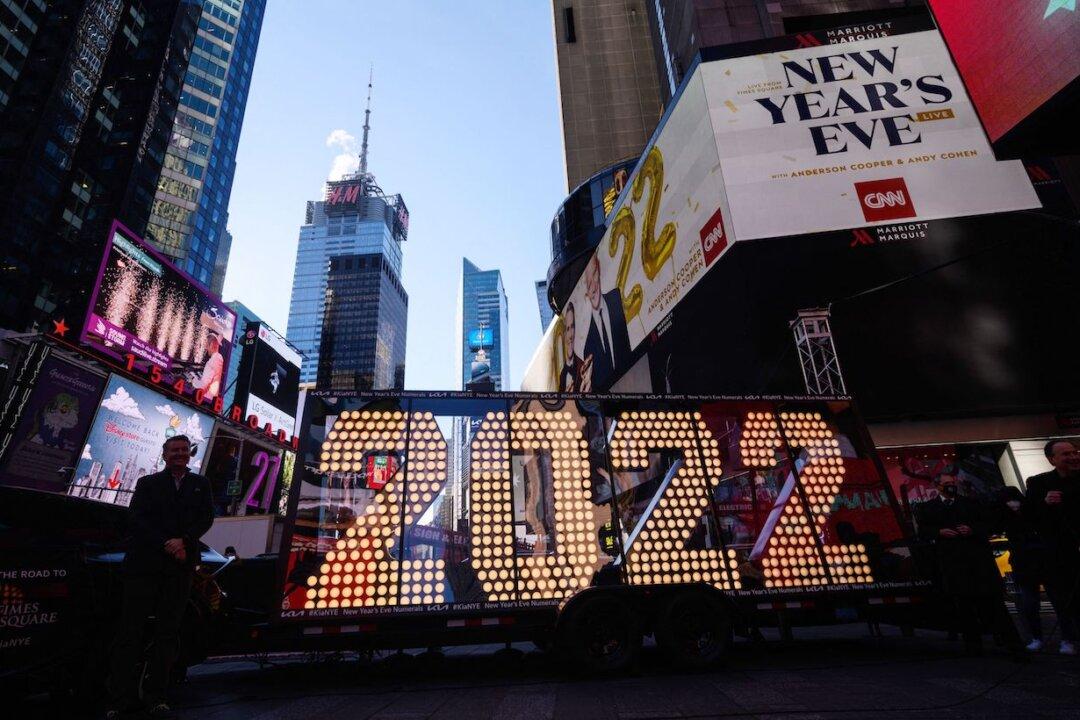NEW YORK—Next week’s New Year’s Eve celebration in Times Square will still go on, just not with as many revelers as usual because of COVID-19, Mayor Bill de Blasio announced Thursday.
Viewing areas that normally accommodate about 58,000 people will be limited to about 15,000 to allow for more distancing, and everyone in attendance must show proof of vaccination and wear a mask.





